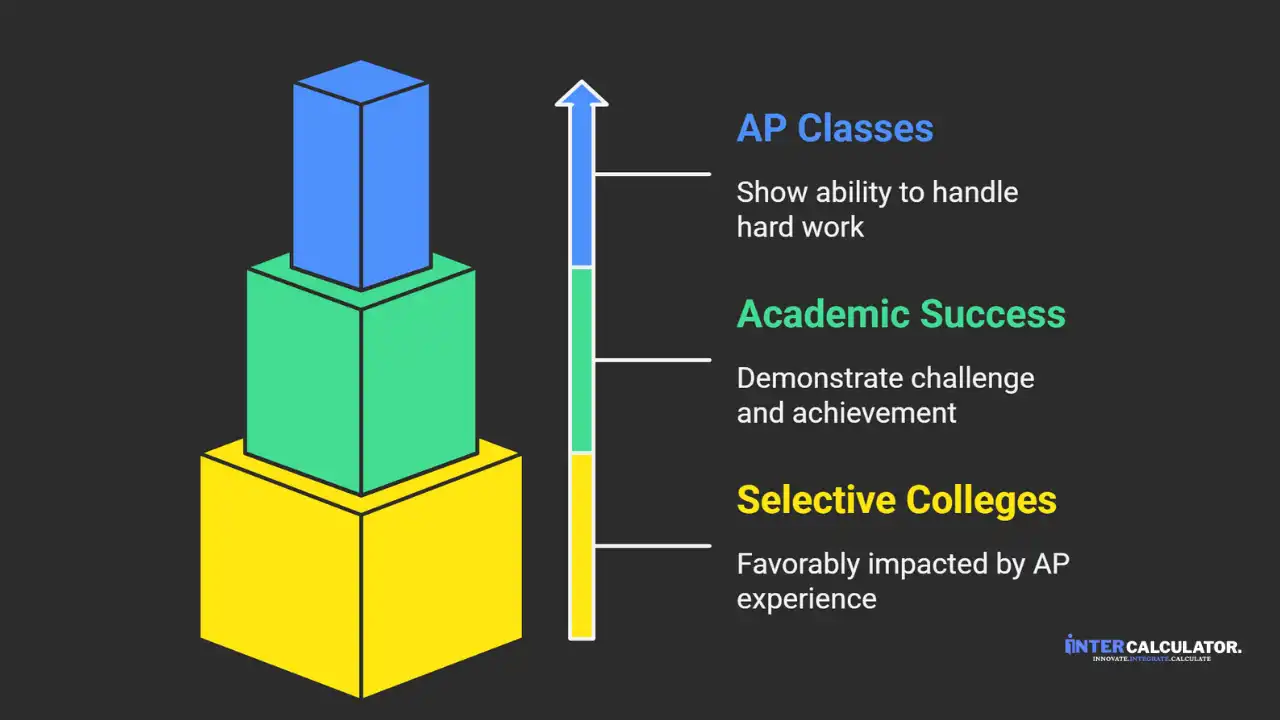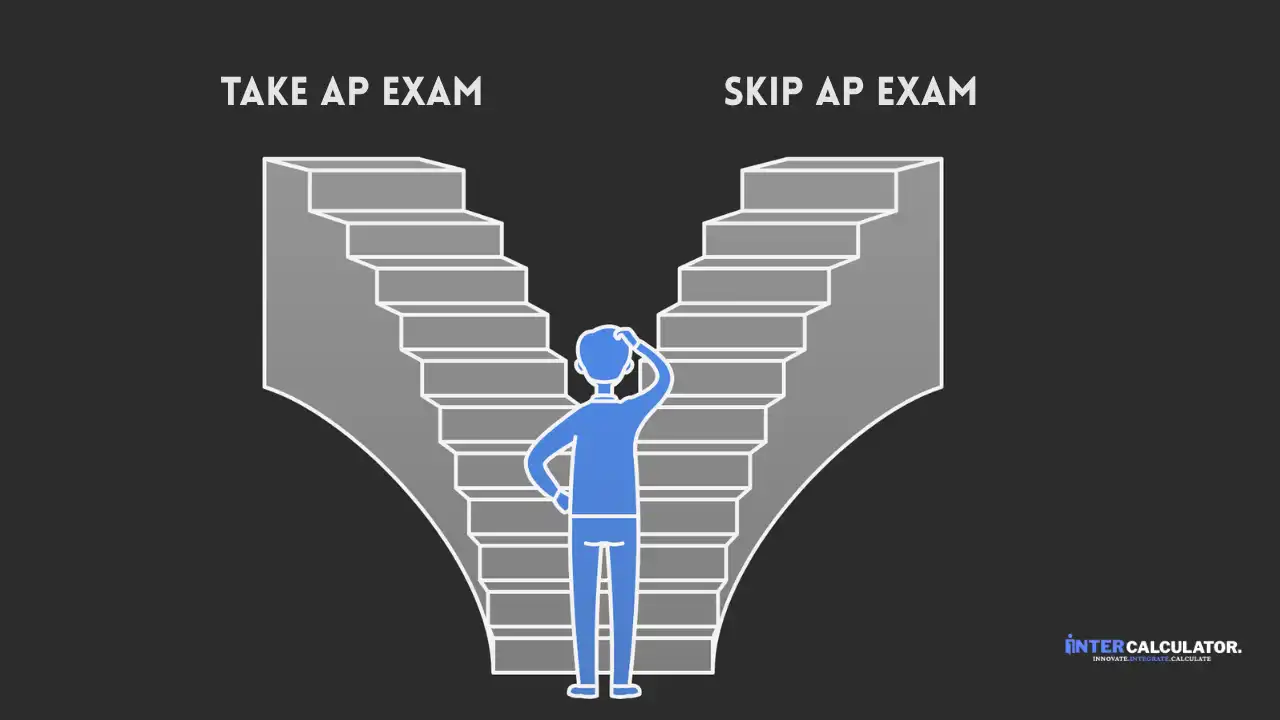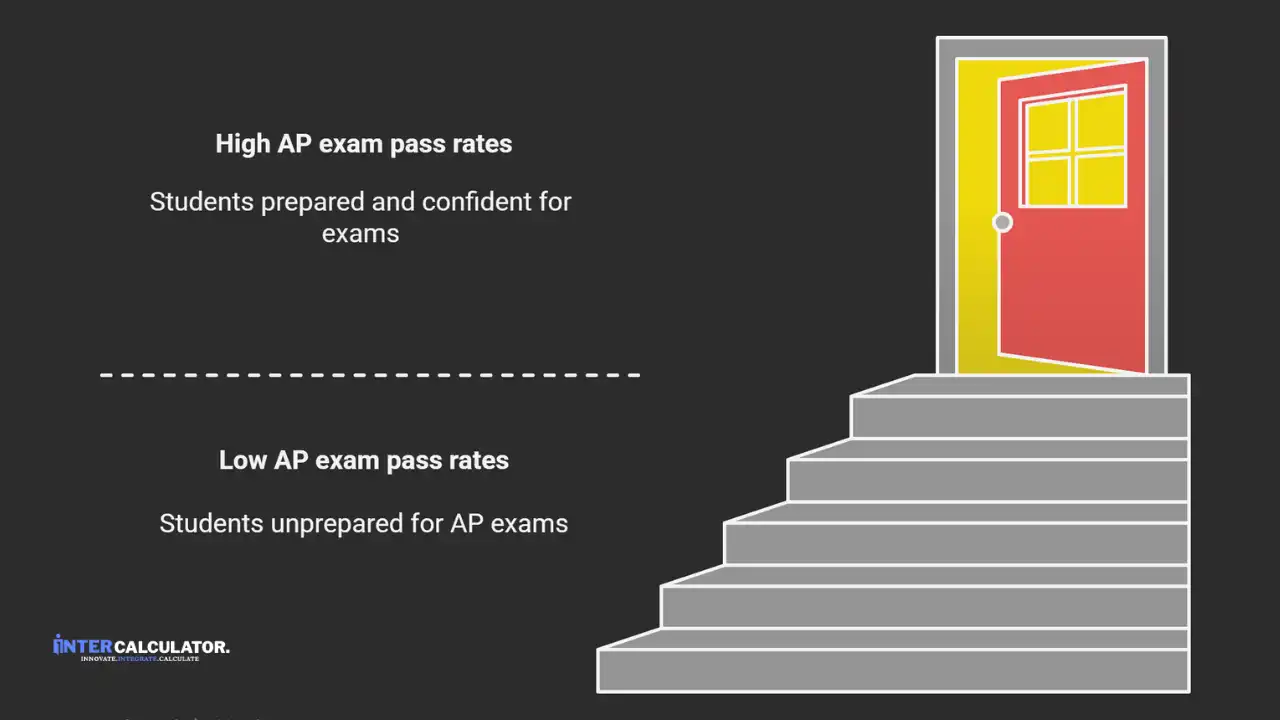You’re thinking about taking AP classes, but you’re not sure if all that extra work is really worth it. I get it. Some students say these classes changed their lives. Others seem stressed and tired. Some save thousands of dollars on college, and some just end up burned out.
So what’s the truth? Well, it depends on you. In this guide, I’ll cover what AP classes are, their benefits, hidden challenges, and how to decide if they suit you. Let’s figure this out together.
Is taking all AP classes worth it?
Not usually. Taking every AP class you can handle might look impressive on paper, but it often leads to burnout and lower grades. Colleges prefer to see a balanced schedule where you challenge yourself and do well. It’s smarter to take a few AP classes in subjects you actually enjoy and can excel in, rather than overloading your schedule with every AP option.
What Are AP Classes?
AP classes, or Advanced Placement classes, are courses in high school. They focus on college-level topics. The College Board creates them.
Here’s how they work: You take the class all year, then take a big test in May. The test scores go from 1 to 5. If you get a 3 or higher, many colleges will give you college credit for it. That means you can skip some college classes later.
Think of it like getting a head start on college while you’re still in high school.
AP vs. Honors vs. IB: What’s the Difference?
You might also hear about Honors classes and IB classes at your school. Let me break down how they’re different.
Honors classes are harder than regular classes but easier than AP. They move faster and go deeper into topics. Your school decides what to teach – there’s no national test at the end. Many schools give you extra GPA points for Honors, but not as many as AP classes.
Think of Honors as the middle step between regular and AP.
IB classes (International Baccalaureate) are similar to AP but work differently. IB is a complete program – you take a bunch of IB classes together over two years. It’s more about writing essays and connecting ideas across subjects. AP lets you pick individual classes you want.
IB is less common in US schools. About 1,800 schools offer IB in the US, while over 22,000 schools have AP programs
Here’s the quick comparison:
| Program | Who Runs It | How It Works | Best For |
| Regular Classes | Your school | Standard pace, basic content | Building foundation skills |
| Honors Classes | Your school | Faster pace, deeper topics | Students wanting more challenge without big tests |
| AP Classes | College Board | College-level content + national exam | Students wanting college credit and flexibility |
| IB Program | IB Organization | Connected 2-year program | Students who like writing and big-picture thinking |
Most students in the US stick with AP because it’s more flexible. You can take one AP or ten. With IB, you’re committed to the whole program.
My advice? If your school offers all three, start with one or two Honors classes in 9th or 10th grade. See how you handle the workload. Then try AP classes junior year if you’re ready.
Don’t jump straight into five APs as a sophomore. That’s how students crash and burn.
College Credit That Actually Saves You Money
You know what surprised me? AP classes can save you real money, not just a little. When you pass an AP exam with a score of 3 or higher, many colleges give you credit for an equivalent class. That can mean skipping an entire semester or even graduating a year early.
According to the College Board’s Trends in College Pricing and Student Aid 2024 report, the average tuition and fees for full-time, in-state students at public four-year colleges are about $11,610 per year (roughly $5,800 per semester). For private or out-of-state universities, costs can reach $25,000–$35,000 per year. So if your AP credits let you graduate one semester early, that’s a savings of $12,000–$18,000, depending on the school.
My cousin Sarah took five AP courses in high school and passed every exam. When she began college, she skipped her whole first semester. This saved her family over $15,000 in tuition and housing. Some students graduate a year early. They save over $30,000 and start their careers sooner.
Here’s what you typically save with AP credits:
-
One semester early: $15,000+ saved (average for many families)
-
One full year early: $30,000+ saved (or more at private universities)
-
Skip intro classes: More time for your major
-
Graduate faster: Start earning money sooner
Each AP exam costs $98 in the U.S. and $128 abroad. So, you’re investing around $100 now to save thousands in the future. If cost is a worry, ask your school about fee cuts or state programs. Many students can get financial help for AP test fees.
Pretty good deal, right?
Standing Out in Competitive College Admissions
When it comes to college admissions, AP classes can really make you stand out. They show that you’re willing to take on tough coursework and handle responsibility.
If you’re also getting ready for the SAT, our SAT Score Calculator can help. It converts your raw section scores into a total scaled score so you can set realistic goals for your college applications.
According to the NACAC State of College Admission (2019) report, only about 5.5% of colleges rated AP or IB exam scores as “considerably important” in admission decisions, while 73% emphasized overall grades in college-prep courses as the most significant factor. This indicates that AP experience can support admissions by strengthening your transcript, but it is not a decisive factor on its own.
To be fair, it’s not just about taking AP classes. It’s about doing well in them. Selective colleges want to see that you have challenged yourself and succeeded.
If you’re trying to get into places like Stanford or Yale, you’ll probably need 7 to 12 AP courses. But if you’re going for a good state school, 4 to 5 is usually enough.
I’ve seen students get into great schools with fewer APs than their friends. The trick? They picked classes they actually cared about and got good grades. Admissions staff can tell when you’re just piling on classes to look good versus when you’re really interested in learning.
Building Critical Skills Before College Starts [New Original Heading]
AP classes teach you more than just subjects. They teach you how to learn on your own, and that’s huge.
In regular high school classes, your teacher reminds you about everything. But in AP courses, you have to manage your own time. You need to read chapters at home, study for big tests weeks ahead, and keep track of everything yourself.
Honestly, this is exactly what college feels like. I remember talking to my friend Jake, who took zero APs in high school. His first semester of college hit him hard because nobody was checking if he did his homework or studied. He had to learn time management the hard way.
AP classes also make you think harder. You can’t just memorize stuff and pass. You have to analyze, write better, and solve real problems. For example, if you’re taking AP English Language, our AP Lang Score Calculator can help you predict your essay and multiple-choice performance before the real exam, perfect for tracking progress throughout the year. These critical thinking skills help you in every college class later, not just the subject you studied.
Research from the College Board shows that students who take AP courses and score 3 or higher usually get better grades in their first year of college compared to students who didn’t take any AP courses.
The best part? You learn all this while still living at home with your parents to help you. It’s like practicing for college with a safety net.
The Hidden Costs: When AP Classes Aren’t Worth It
The Stress and Burnout Factor [New Original Heading]
Let me be real with you: AP classes can be really hard on your mental health. I’ve seen students take four or five AP courses at once and completely fall apart by spring.
Dr. Denise Pope, a senior lecturer at Stanford Graduate School of Education and one of the top education researchers in the country, did research on this. She found that many schools dropped AP classes because they were causing too much stress for kids. Students were getting less sleep, feeling anxious, and losing interest in learning just to pass tests.
The workload is no joke. You’re doing homework that takes way longer than regular classes. You’re studying for hard tests. And you still need time for sports, friends, family, and just being a teenager.
I knew a girl named Emma who took six APs her junior year. She thought it would look amazing for college applications. But by March, I’d see her in the library with empty coffee cups everywhere and red eyes from crying. Her grades dropped from As to Cs. She quit the soccer team she’d played on since freshman year. She was catching every cold and flu because she wasn’t sleeping more than four hours a night.
Here’s what nobody tells you: colleges would rather see you take three AP classes and do well than take six and get Cs. Burnout helps nobody.
Watch for these warning signs:
- You’re tired all the time, even after sleeping
- You forget assignments or important dates
- You feel hopeless or want to give up
- You’re getting sick more often
- You’ve quit activities you used to love
If you’re seeing these signs, that’s your body saying, “This is too much.” Listen to it.
When AP Classes Hurt Your GPA
Here’s a tough truth: AP classes can actually damage your GPA if you’re not careful. Yes, many high schools give you extra points for taking them. But if you get low grades, that doesn’t help you at all.
Let’s say your school gives you a 5.0 for an A in an AP class instead of a regular 4.0. Sounds great, right? But what if you get a C? That’s still just a 3.0 or maybe a 3.5 with weighting. You would’ve been better off getting an A in a regular class.
College admissions officers see this all the time. They look at the actual letter grade first. According to the National Association for College Admission Counseling (NACAC), 73% of colleges rated grades in college-prep courses as “considerably important” in their admission decisions.
I watched my neighbor’s son take AP Chemistry even though he struggled in regular chemistry. He thought it would impress colleges. He ended up with a D. That D sat on his transcript and hurt his chances way more than just taking honors chemistry would have.
Here’s my advice: if an AP course drops your grade by a full letter (like from an A to a B, or B to a C), you need to think hard. Is it worth it? Sometimes yes, sometimes no. But a low grade in an AP class is worse than a high grade in a regular one.
What if you fail the exam? Your college won’t see the score unless you send it. Most students only report their good scores. But you still wasted time and money, so pick classes you can actually pass
The Financial Investment: Exam Fees Add Up
People talk about saving money with AP classes, but nobody mentions that you have to pay to take the tests first. And those exam fees aren’t cheap.
According to AP Central, each AP exam costs US $99 at schools in the U.S., U.S. territories, Canada, and all DoDEA schools. At schools outside the U.S., the cost is US$129 per exam.
Beginning in the 2025-26 school year, the exams for AP Capstone Seminar and Research will cost the same amount as all other AP exams.
Let’s do the math. If you take five AP exams, that’s $490. For a family, that’s a lot of money just for tests.
The funny part is, you pay all this money and you might not even pass. Or you might pass, but the college you choose doesn’t accept that particular AP credit. My friend David spent $392 on four exams, but his college only accepted credit for two of them. He basically threw away $196.
The good news? If your family doesn’t have much money, you can get help. Students who qualify for the National School Lunch Program can get fee reductions. Some states and schools also help pay for the tests.
But you need to ask about this early. Don’t wait until test day and hope someone offers to help. Talk to your guidance counselor in the fall.
Who Should (and Shouldn’t) Take AP Classes?
Not everyone needs AP classes. That’s okay. Let me help you figure out if you’re the right fit.
| You Should Take AP Classes If: | You Should Skip AP Classes If: |
| You’re getting As and Bs easily in regular classes | You’re already struggling with your current grades |
| You have good time management skills | You’re super busy with sports, jobs, or family stuff |
| You’re aiming for competitive colleges | You’re only doing it because someone told you to |
| You actually enjoy the subject | You hate the subject, but think it looks good |
| Your school has good AP teachers and pass rates | Your school’s AP program has low pass rates |
Look at this table honestly. Where do you fit?
If you love history, take AP U.S. History. If you hate math, don’t force yourself into AP Calculus just because it sounds impressive. That’s a recipe for misery.
If you’re already taking AP U.S. History or planning to, you can use our free APUSH Score Calculator to estimate your exam score based on multiple-choice and essay results. It’s a great way to see where you stand before test day.
I’ve seen too many students sign up for APs because their parents pushed them, or their friends were doing it. Then they hate every minute of it. You’re the one sitting in that class every day, not them.
Here’s something important: AP classes work best when three things line up. First, you need a good teacher who knows how to explain hard stuff. Second, you actually care about the subject you’re studying. Third, your school gives you support like review sessions or tutoring, when you need help.
Without these three things, students often end up stressed, confused, and not learning much. I’ve seen this happen many times. Kids sign up thinking it’ll look good on paper, but then they struggle all year because they picked the wrong class or didn’t have the right support.
Be honest with yourself. Don’t take five AP classes to impress people if you know you’ll be miserable. Take one or two that match what you want to study in college. That’s smarter.
Making Your Decision: A Practical Framework
Consider Your College Goals
Where you want to go to college changes how many AP classes you need. It’s that simple.
| College Type | Recommended AP Courses | What Matters Most |
| Ivy League / Top 20 Schools | 7-12 AP courses | Take the hardest classes your school offers |
| Top Public Universities | 4-6 AP courses | Focus on classes for your major |
| State Universities | 3-5 AP courses | Core subjects (Math, English, Science) |
| Community College | 1-3 AP courses (optional) | Only if you enjoy the subject |
Look at this table and be realistic. If you’re heading to your local state school, you don’t need to kill yourself taking every AP available. Save your energy.
Think about what you want to study, too. If you’re going into engineering, focus on AP Calculus, AP Physics, and science classes. If you want to be a writer, take AP English and history courses instead.
Don’t just collect AP classes like trophies. Pick the ones that actually help your future goals. That’s way smarter than trying to impress people with a long list.
Evaluate Your School’s AP Program Quality
Not all AP classes are the same. Some schools have amazing teachers and great pass rates. Others? Not so much.
Before you sign up, ask your guidance counselor a simple question: “What percentage of students pass the AP exam in this class?” If most kids are getting 3s, 4s, and 5s, that’s a good sign. If most are getting 1s and 2s, that’s a red flag.
Talk to students who have already taken the class. Ask them honest questions:
- “Was the teacher helpful and clear?”
- “Did you feel ready for the AP exam?”
- “How many hours of homework per week?”
- “Would you take this class again?”
- “What was the hardest part?”
Their answers will tell you way more than any school brochure ever will.
I learned this the hard way. I took AP Biology at my school, and our teacher was new. Only 3 out of 20 kids passed the exam that year. We all worked super hard, but didn’t get the right preparation. I wish I had asked around first.
Check if your school offers extra help like study groups, review sessions, or tutoring. The College Board provides resources, but your school needs to actually use them and teach well.
A good AP program makes a huge difference. A bad one just wastes your time and money.
The Bottom Line: Are AP Classes Worth the Effort?
So here’s my honest answer: it depends on your situation.
AP classes are worth it if you’re ready for the workload, you care about the subject, and your school has good teachers. They can save you money, help you get into better colleges, and teach you skills you’ll use forever.
But they’re not worth it if you’re already stressed, struggling with grades, or just doing them because everyone else is. A lower GPA and a burned-out mind won’t help you anywhere.
Pick one or two AP courses that match what you want to study. Don’t overload yourself trying to impress people. Do well in the classes you choose, and you’ll be fine.
What matters most? Being honest with yourself about what you can handle. That’s way smarter than trying to do everything and failing.
FAQs
Do colleges actually care about AP classes?
Yes, but mostly as a sign that you challenged yourself academically. Admissions officers value strong grades in rigorous courses, not just the number of APs you’ve taken. In fact, according to the National Association for College Admission Counseling (NACAC), 73% of colleges rate grades in college-prep courses as “considerably important.” So APs help your application, but only if you perform well in them.
What are the downsides of AP classes?
Here are a few common drawbacks students experience:
-
Heavy workload: Expect significantly more reading, essays, and study time than in regular classes.
-
Stress and burnout: Balancing multiple APs can impact sleep, mental health, and free time.
-
Cost: Each exam costs around $99 in the U.S., which adds up quickly if you take several.
-
Uncertain credit: Not all colleges accept every AP exam for credit, even with a passing score.
-
Lower GPA risk: A low grade in an AP class can hurt your GPA more than a high grade in a regular class.
What is the #1 hardest AP class?
Based on student surveys and pass rates, AP Physics 1 is often considered the hardest AP class. It combines complex math with deep conceptual understanding, and the exam’s pass rate is one of the lowest. Other challenging APs include AP Chemistry, AP Calculus BC, and AP U.S. History (APUSH) — all known for demanding content and high expectations.
What is the easiest AP class?
Many students say AP Psychology is one of the easiest AP classes, especially if you enjoy learning about human behavior. It involves more memorization than problem-solving. AP Environmental Science and AP Human Geography are also considered manageable for first-time AP students; they’re interesting, not too math-heavy, and have straightforward exams.
How much do 4 AP classes boost your GPA?
It depends on how your school weights AP courses, but generally, each AP class can add 0.5 to 1.0 points to your GPA for every high grade you earn.
For example, if your school uses a 5.0 GPA scale for AP classes:
-
An A in an AP class = 5.0 instead of 4.0
-
A B in an AP class = 4.0 instead of 3.0
So if you take 4 AP classes and earn As in all of them, your weighted GPA could rise by about 0.3 to 0.5 points overall, depending on how your school calculates GPA.
But remember, the boost only helps if you maintain strong grades. A C in an AP class (even weighted) can pull your GPA down compared to an A in a regular class. Colleges look at both your GPA and the rigor of your schedule, so balance matters more than just the number of APs.



